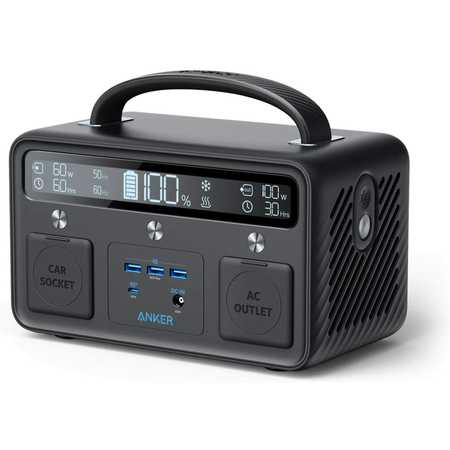expiredbh805 posted Feb 26, 2021 06:42 PM
Item 1 of 1
expiredbh805 posted Feb 26, 2021 06:42 PM
Amazon.com: Anker Portable Generator for Home Use, PowerHouse II 400, 300W/388.8Wh, 110V AC Outlet/60W USB-C Power Delivery Portable Power Station $299
$299
Amazon
Visit AmazonGood Deal
Bad Deal
Save
Share



Leave a Comment
72 Comments
Sign up for a Slickdeals account to remove this ad.
This is a battery, no ifs ands or buts.
This is a battery, no ifs ands or buts.
But my question was whether it's possible and common to have only DC devices without truly "roughing it". I think that most folks assume that you HAVE to have AC to power common devices, and don't realize that many if not most of the "AC" devices they use today are actually DC internally and convert the AC they're plugged into to DC, losing some efficiency in the process. Laptops, phones, tablets, TVs, lights, etc., are all DC internally, and with the proper adapters (that are much more energy-efficient) don't need AC. Heaters, water heaters, stoves, etc., can all be powered with propane, gas or diesel. Even high-power devices like hot pots, coffee makers, induction ranges and microwave ovens can run off DC, with the proper wiring.
If you're using a given AC device because it makes the most sense, I get it. But if you're only using it because you're used to AC-only devices and in your mind power means AC, then maybe you need to rethink power when off the grid. DC-AC and then AC-DC conversion is inefficient, losing 30% or more power. If you're running off of solar most of the time and have more than enough power for your needs, then such inefficiency isn't really a problem since solar power is essentially free after the sunk costs of installation. But if you often use costly alternator, shore or home power, or your solar setup is often borderline depending on the location, season and weather and because you don't have enough panels on the roof, then this would be an obvious way to deal with such issues. Plus I thought that living off the grid was living differently and not duplicating the fixed home experience.
Sign up for a Slickdeals account to remove this ad.
If you put electricity in and later withdraw it as electricity, that is a storage device.
Often called a battery.
At max of 300W draw, it's good for charging a laptop/phone a bunch of times, but not much else. These "power stations" also charge very slowly.
It's better to buy the components separately (battery and inverter), pay a little more, get way more battery capacity, and a real inverter.
Sign up for a Slickdeals account to remove this ad.
If you put electricity in and later withdraw it as electricity, that is a storage device.
Often called a battery.
Leave a Comment